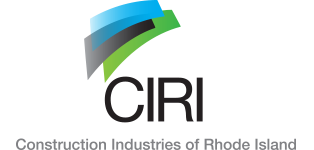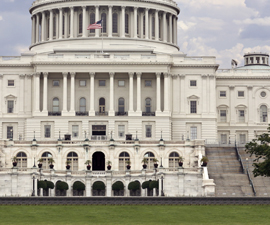Resisting the tides of regulatory overreach.
TMAW program is a driving force on the national level.
Federal regulations are continually being introduced that are often unwarranted and injurious to the transportation construction industry. This is particularly true for an outgoing administration. For example, May 16 was the last day for the Obama Administration to introduce regulations that are not subject to the Congressional Review Act. Any regulations introduced from May 17 forward could be struck down by the next Congress or President in January 2017.
Through its ongoing advocacy activities, ARTBA’s Transportation Makes America Work (TMAW) program plays a key role in helping to protect the interests of our industry at large. Funds donated to TMAW support ARTBA’s efforts to litigate against federal regulatory overreach, to join in coalitions seeking legislative relief — and to ensure the voice of the transportation construction industry is heard during all regulatory discussions.
In addition to the new OSHA regulations for silica dust exposure, federal regulatory proposals that ARTBA is actively challenging include:
Proposed changes to the EEO-1 form. The Equal Employment Opportunity Commission (EEOC) has proposed to increase reporting requirements for numerous employers, including contractors working on federal-aid construction projects. Currently, all private contractors with 100 or more employees working on such projects must report data reflecting the ethnicity, race, and gender of their employees through the EEO-1 form. The Commission’s February 1 proposal would require those employers to report salary and number of hours worked for employees as well.
The proposal raises numerous issues, including the anticipated administrative and project costs of this additional regulatory burden. Another area of concern is the lack of context for these salary records, since the required reports will not include information on the seniority, education level or performance of employees. Recent large-scale breaches of confidential federal government data also raise security and privacy concerns about the collection of proprietary salary information.
Redefining “waters of the United States.” In one of the largest regulatory efforts under the current administration, the United States Army Corps of Engineers and the Environmental Protection Agency (EPA) are proposing to expand the current definition of “waters of the United States.” Currently, federal jurisdiction extends only to “navigable” waters and adjacent wetlands. Under a new EPA rule, however, the government’s reach would extend to all waters of the United States.
ARTBA and its industry allies filed a federal lawsuit in 2015 to stop the EPA from extending federal jurisdiction over roadside ditches. ARTBA has made the case, on multiple occasions, that roadside ditches should not be regulated as traditional jurisdictional wetlands “as they are not connected water bodies and they contribute to the public health and safety of the nation by dispersing water from roadways.”
The new rule, however, did not categorically exempt roadside ditches from federal jurisdiction. A federal appeals court has prevented the rule from taking effect while the litigation is pending.




